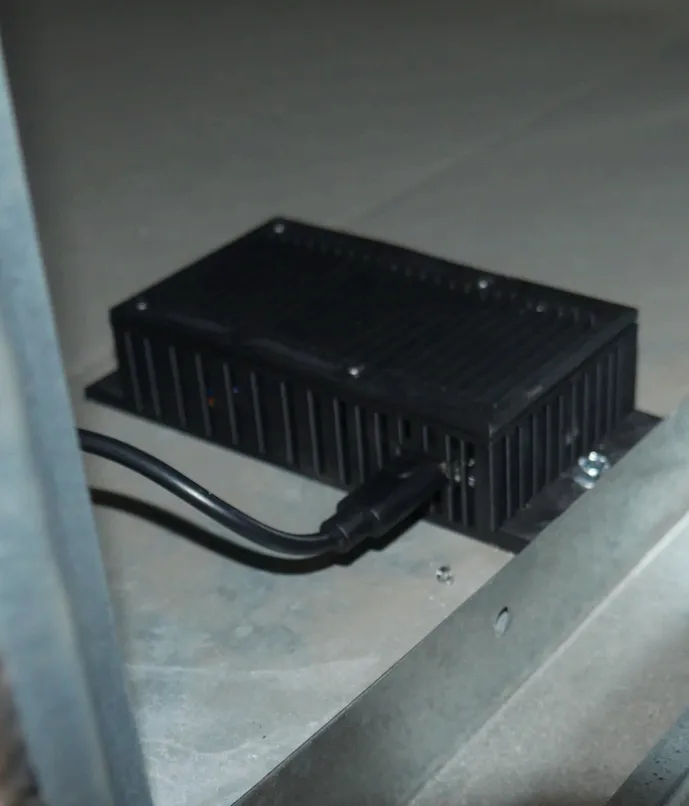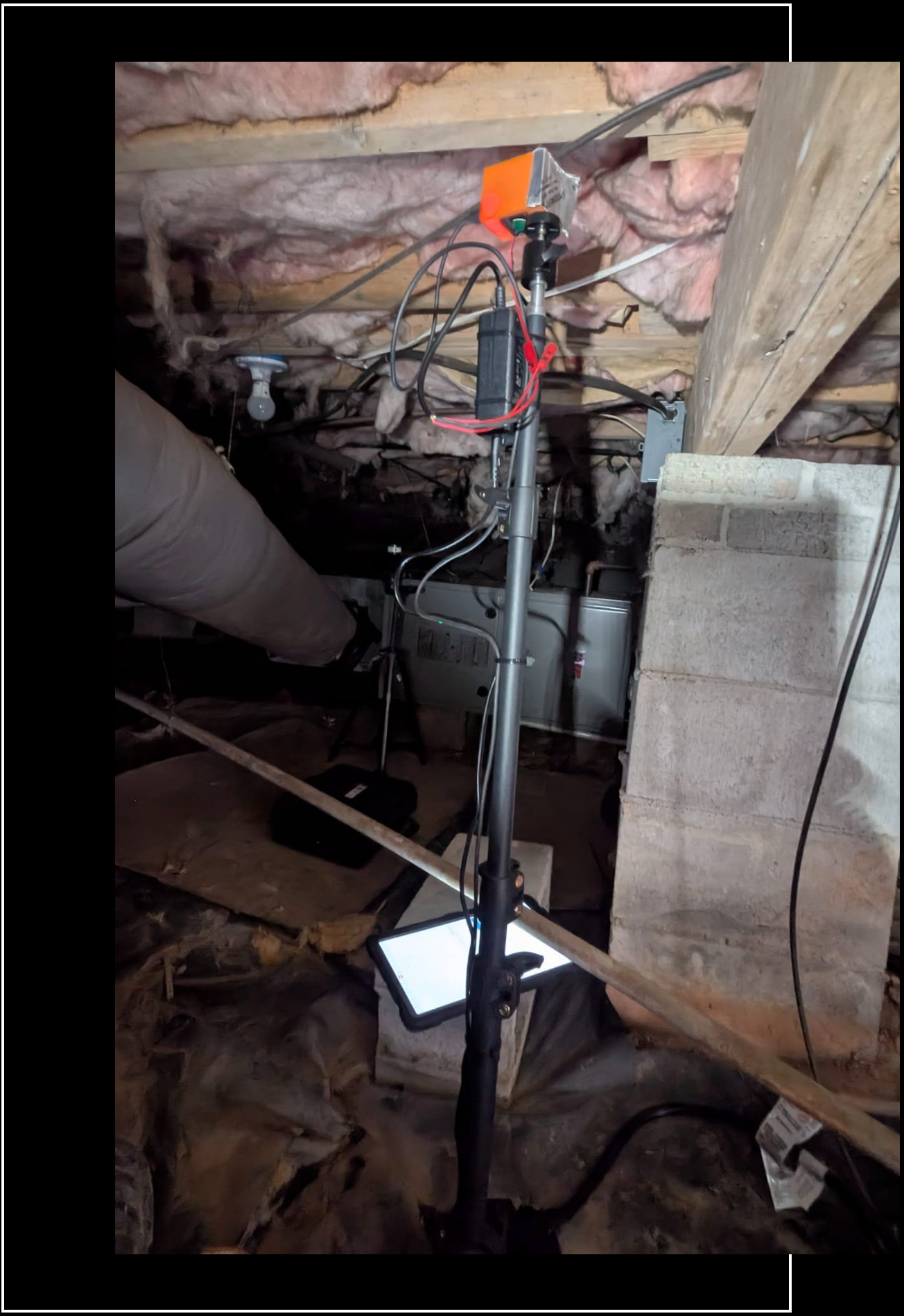Simple Installation
The AirGuard device is designed to fit seamlessly into your home — whether it's your HVAC system, crawl space, or interior living space. You can place it anywhere you are concerned about mold or spend the most time breathing the air.
All you need is a standard power outlet and Wi-Fi connection. No invasive installations, no complicated setup — just plug in, connect, and start protecting your home.
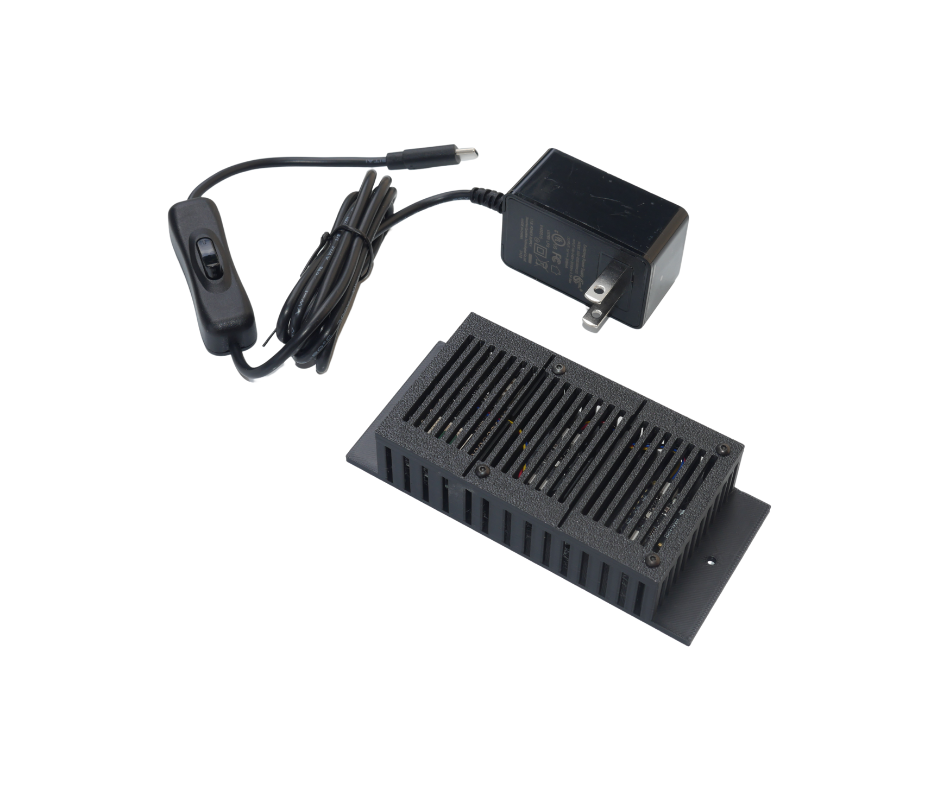
Predictive Monitoring
AirGuard continuously tracks environmental factors like temperature and humidity in real time. Using a proprietary algorithm, it analyzes this data to predict mold risk levels — helping you stay ahead of potential problems before they start.
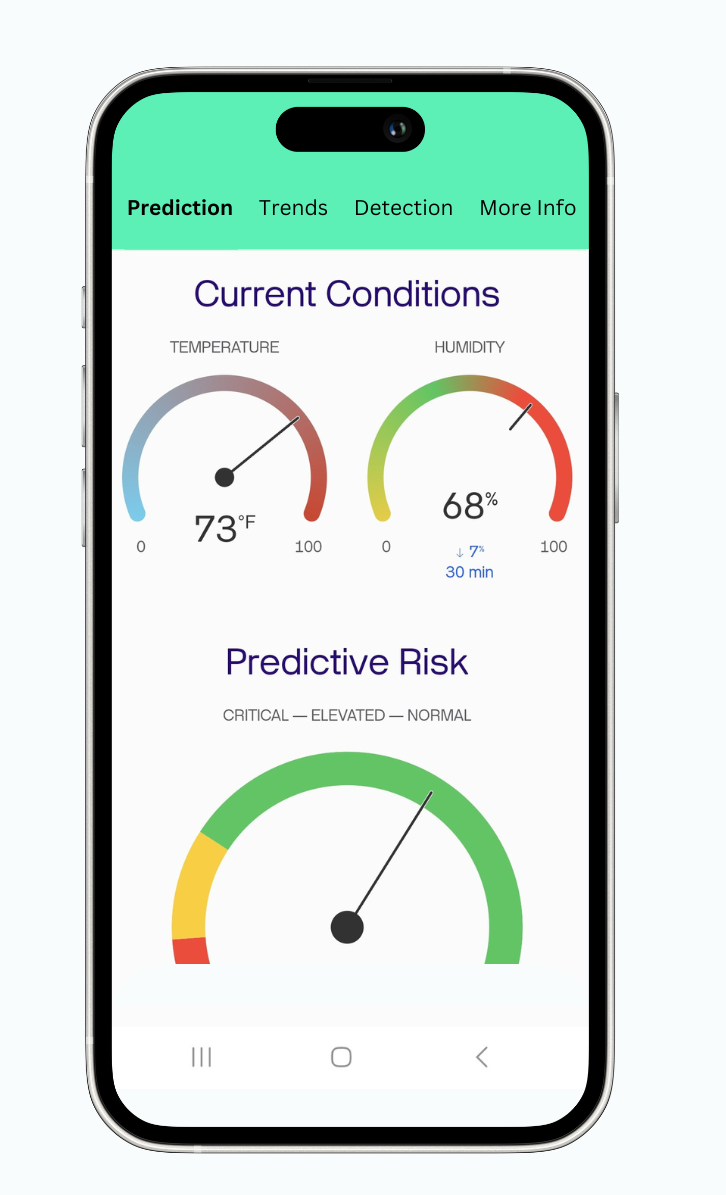
Smart Mold Detection
AirGuard is designed to provide real-time detection and classification of two common indoor mold types: Penicillium/Aspergillus and Cladosporium. These detection features are powered by advanced artificial intelligence (AI) models trained on curated datasets of verified mold samples.
Please note that this feature is still under active development. While the underlying AI models are functional, they are currently in a limited-release phase and are being continuously refined. Additional mold types will be introduced as they are validated through rigorous scientific and field-testing protocols. As such, users may experience updates or changes in detection capabilities over time.
AirGuard’s AI-driven system is designed to support indoor air quality awareness with high potential for accuracy, but it should not be used as a sole diagnostic tool. For any health concerns or potential mold remediation decisions, professional testing and evaluation are strongly recommended.
We appreciate your understanding as we work to bring this powerful feature to full maturity and ensure it meets the highest standards of reliability and safety.
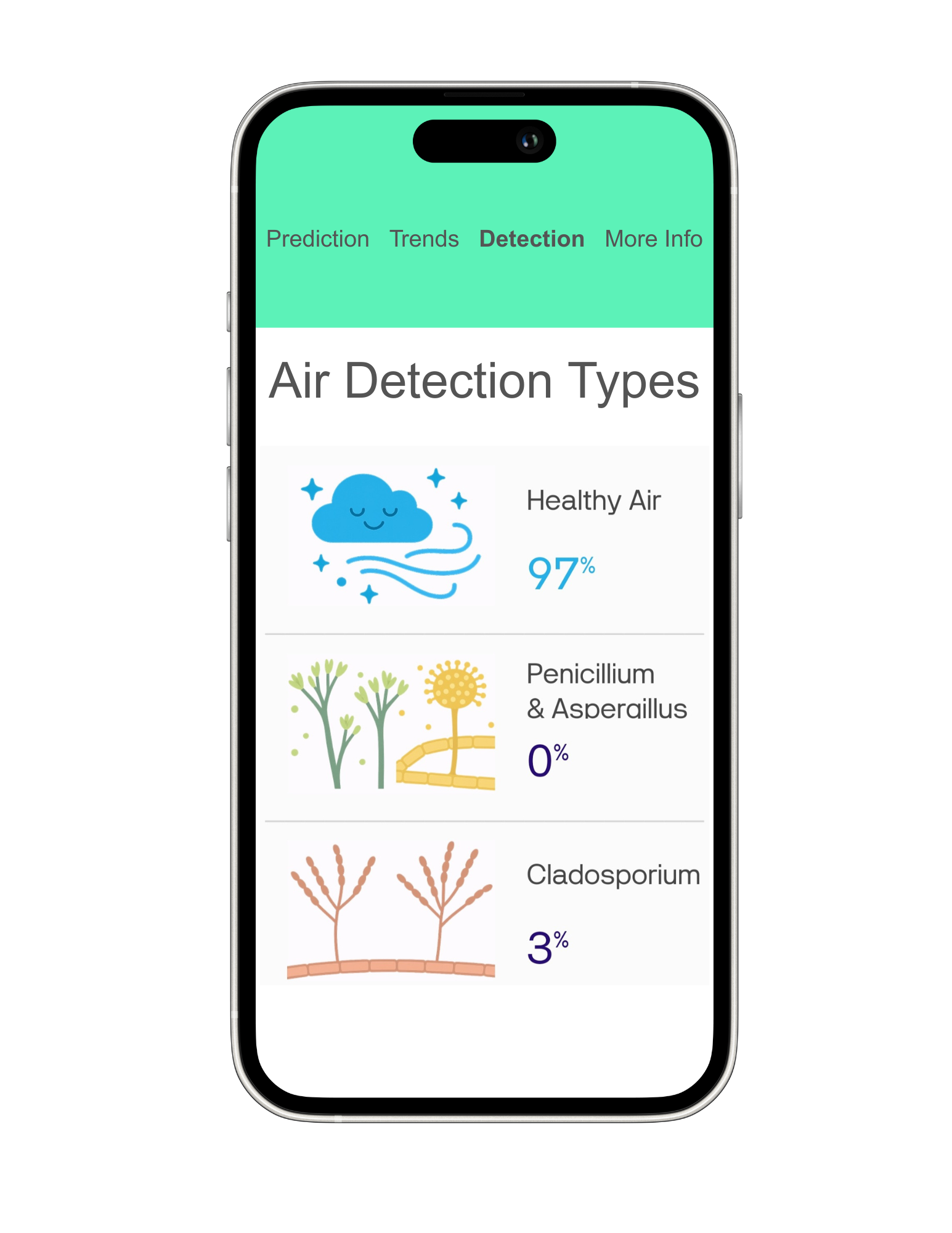
Alerts & Reporting
When mold risk thresholds are exceeded, AirGuard sends email and push notifications through the app — so you can respond before issues arise.
Each alert provides a clear explanation of the risk level and actionable next steps, such as improving airflow or reducing humidity.
To keep you proactively informed, AirGuard also delivers a weekly environmental health report, giving you a snapshot of your home's air quality and mold risk trends over time.
With AirGuard, you're always ahead of the problem — informed, empowered, and protected.
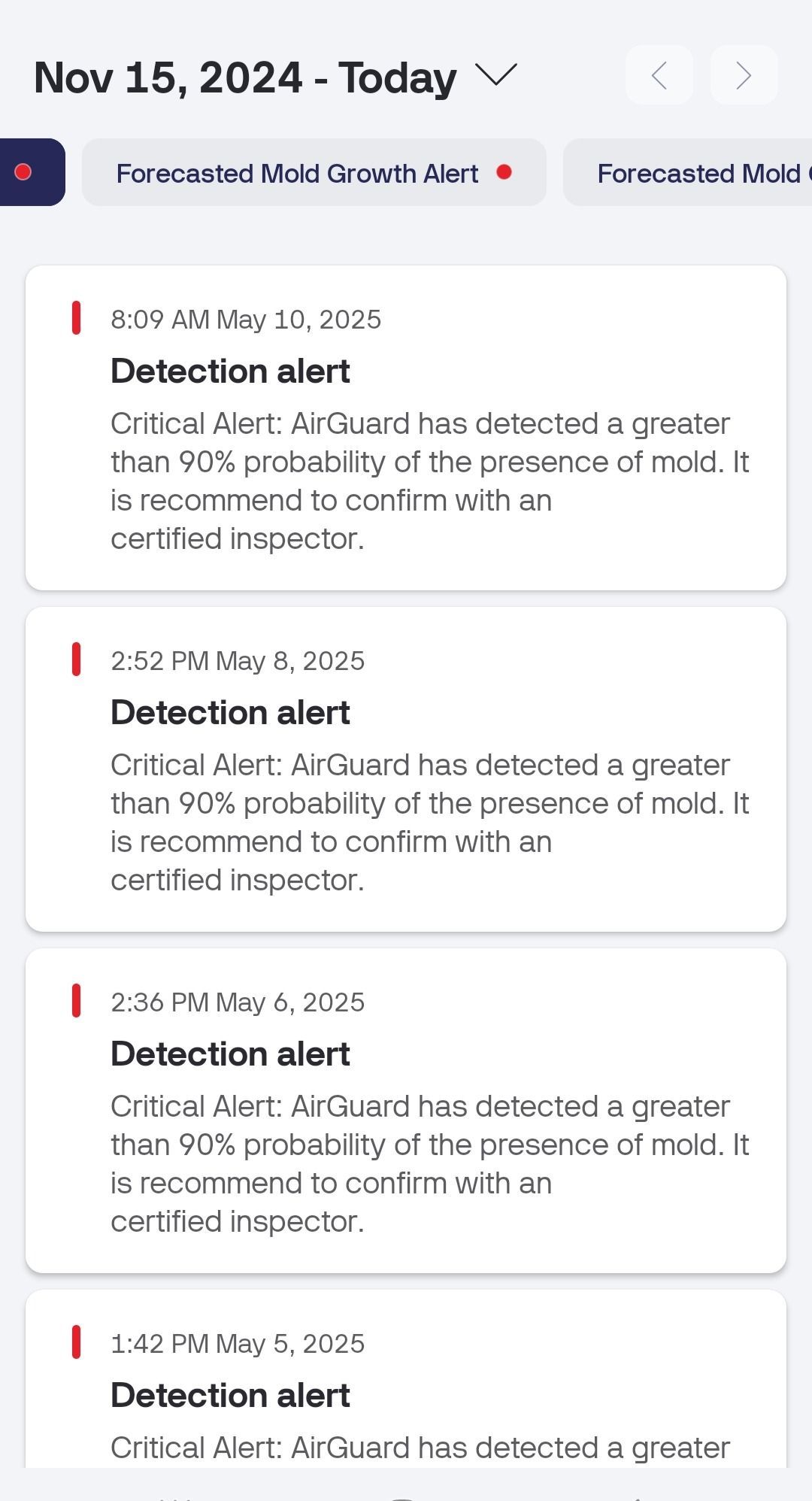
Constantly Evolving
AirGuard engineers are pioneering the future of indoor air quality monitoring. We are actively expanding our AI’s ability to detect even more mold types and environmental risks.
As new detection models are developed and validated, they will be automatically deployed to your device through seamless software updates — ensuring your AirGuard system gets smarter and more protective over time, without the need for new hardware.
Data Validation
AirGuard’s detection technology has undergone rigorous internal validation and has been independently tested by third-party laboratories to ensure reliable, real-world performance.
Our data models are continuously refined using lab-backed environmental simulations and verified mold samples — so you can trust that the alerts and readings you receive are accurate, meaningful, and actionable.
While our AI-enhanced systems are designed to provide dependable performance, it is important to understand that AI-based predictions are inherently probabilistic. We recommend using AirGuard's alerts as part of a comprehensive assessment process that may include further inspection or professional testing when necessary.

